Connectional Intelligence: How to Get Big Things Done
March 18, 2015
"We've been living with the internet now for twenty years and it's not news that we're all connected. Unless a totalitarian government swoops down and takes away our cell phones and our access to social media, that connectivity isn't going anywhere. The question is: How do you and I grab hold of this newfound connectivity to take us to the places we want to go? At a time when old-fashioned routes to power—the schools you went to, the contacts in your address book, the families you were born into—are not the only ways to get ahead, how do we connect intelligently, e.g. better, faster, more efficiently, and use all of our connections to make our ideas happen? Almost everyone has at least the capacity to link up with people, power, ideas, information and resources, but how do we synthesize it all to produce real change and influence people's lives for the better? The key is thinking differently about our connections. We need a shift in perception that empowers us to be the drivers of our digital tools and our new resources. This doesn't just mean executives or traditional gatekeepers. This means anyone. This means you."
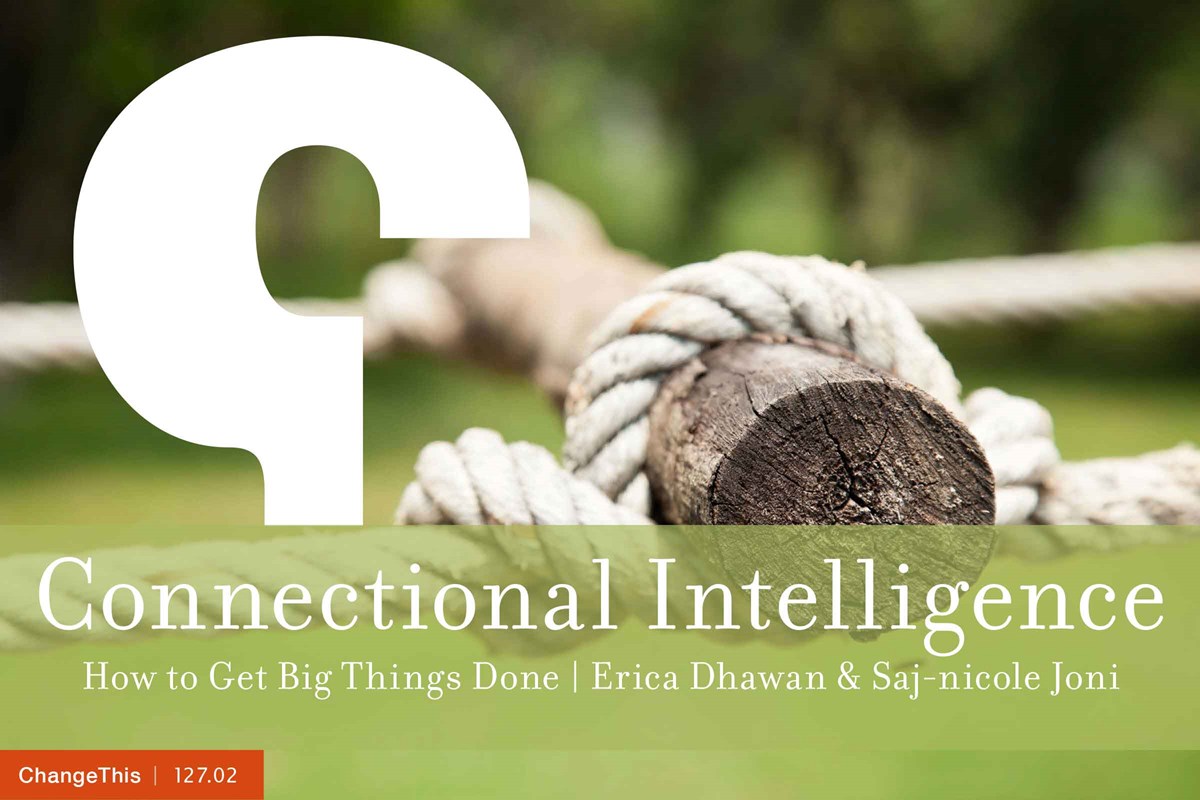 We’ve been living with the internet now for twenty years and it’s not news that we’re all connected.
We’ve been living with the internet now for twenty years and it’s not news that we’re all connected.
Unless a totalitarian government swoops down and takes away our cell phones and our access to social media, that connectivity isn’t going anywhere. The question is: How do you and I grab hold of this newfound connectivity to take us to the places we want to go?
At a time when old- fashioned routes to power—the schools you went to, the contacts in your address book, the families you were born into—are not the only ways to get ahead, how do we connect intelligently, e.g. better, faster, more efficiently, and use all of our connections to make our ideas happen? Almost everyone has at least the capacity to link up with people, power, ideas, information and resources, but how do we synthesize it all to produce real change and influence people’s lives for the better?
The key is thinking differently about our connections. We need a shift in perception that empowers us to be the drivers of our digital tools and our new resources. This doesn’t just mean executives or traditional gatekeepers. This means anyone. This means you.
Connection is part of human nature; it’s necessary to our survival, but until now we’ve never had the capability or the tools to connect to one another on such a monumental scale. To put it another way, we’ve always been travelers and conversationalists, but we’ve never had so many
airplanes, or a room big enough to hold everyone. Until now no one has cracked the code of how we can all pursue our hobbies, passions, interests, initiatives, and innovations and share them with such a diverse audience in meaningful ways.
This is where Connectional Intelligence (CxQ) comes in.
Connectional Intelligence is the ability to combine the world’s diversity of people, networks, disciplines and resources, forging connections that create value, meaning and breakthrough results.
Connectional intelligence is key to getting big things done in today’s world.
Take a Dream.
Add Connection.
Dream Bigger.
Get Big Things Done.
So why does connectional intelligence matter? Two reasons.
First, we believe that carried out right, connectional intelligence has the potential to transform you, me, people, businesses, organizations, industries, societies, and even the world.
The second reason comes from our look at generations. Any parent with a school-age child knows that the kid is adept at navigating the connected world and can use the internet to find whatever they need—to do his or her homework, listen to Spotify, connect on Facebook,
post on Twitter and watch a Vampire Weekend video on YouTube, often all at the same time. Parents can shake their heads at this, but guess what? Combining multiple streams of information and media is what people who came of age during the Internet know and do automatically. And they’ll keep working this way because they know the benefits of working in a connectional, collaborative environment.
In contrast to the generations before them, the next wave of connectors intuitively understand that in the 21st century, practically everything is personal. The personal then quickly affects the local and can spread globally. Power and influence are more seize-able than ever, but power is now accumulated through connecting with others, not dominating others. You have the opportunity now to build movements that don’t tyrannize, but engage and uplift any group of people.
We all have to know how to harness connectional potential across generations, whether as consumers, executive directors, managers, or CEOs. We all have the potential to tap into the available ideas, people, and resources to creatively change the world through the power of connection.
A decade ago, leading social theorists noted that “it is who you know” as well as “what you know” that makes a difference in life and society. At the time, it was a pioneering point of view, and “who you know” has since become common shorthand for the web of connections that vaults some people ahead of others who have seemingly similar talent and drive.
Today, this thinking seems narrow and limited and is in need of an update. Connectional intelligence is about combining the two: “who you know” with “what you know,” plus your passions and interests. Being connectionally intelligent means harnessing people, resources, ideas, and platforms—anything that’s available to you—and learning how to use them in the smartest way to get big things done.
In today’s world, to be successful we all need to enter the category of a connector, and most of us already have. The big question is not whether or not you are a connector but what type of connector you are.
There are three categories of connectionally intelligent people—Thinkers, Enablers, and Connection Executors. Thinkers help spark and generate the big ideas, Enablers create the structures and forces to get big things done, and Connection Executors mobilize all the
people and resources needed to get big things done.
In our book, Get Big Things Done, we’ve identified that these three categories of connectionally intelligent people have varying strengths. For Thinkers, their greatest strength is curiosity. For Enablers, their greatest strength is community building. For Connection Executors, their
greatest strength is mobilization.
THE THINKERS
These are the people who generate the groundbreaking ideas. They help see the big picture and imagine all possibilities. Within the thinkers, there are the dreamers, the adventurers, and the seekers.

DREAMERS: creative, idealistic, and patient—visionaries with strength of imagination.
Description: They are the heart of the connectional intelligence universe. Dreamers are almost always engaging with the future, imagining the possibilities and what might be next. They are most comfortable among imaginative people with inventive ideas and an original take on life. And they are always asking, “What if?”
Tools: Share your ideas with different communities and networks. Sharing comes easy for a Dreamer. Spend time with new people who encourage you to see things from new perspectives and other angles.
Build alliances with partners who have common interests and missions, but different skills, to support your goal. Dreamers require partners to turn their ideas into action. When you surround yourself by others who challenge you, you can find wisdom in the exchange of ideas, and fight your way to breakthroughs.
Leverage what’s been done before. Find commonalities with your big dreams and what already exists. Be open to the various ways people are already taking action around your dream and learn to work with them in new ways.
“Without leaps of imagination or dreaming, we lose the excitement of possibilities. Dreaming, after all is a form of planning.” —Gloria Steinem
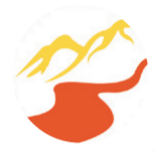
ADVENTURERS: independent, unconventional, courageous—a trailblazer.
Description: Adventurers are people who dare to go out into the world to seek new experiences, unchartered territory, and novel undertakings. They go out and discover problems. When they employ connectional intelligence, they get big things done far and wide. Adventurers reject labels, boxes or constraints of any kind, and accept risk as part of the adventure.
Tools: Leverage your mastered skills to get out of the box. Start with what you know well and think about how you can use it to build and test new ideas.
Engage regularly with a supportive hub or community in which you can test your ideas and turn them into action.
Study adjacencies—activities and topics loosely connected to your primary interest—to identify new ways of addressing challenges.
“One doesn’t discover new lands without consenting to lose site of the shore...” —Andre Gide
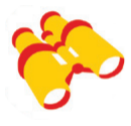
SEEKERS: curious, autonomous, bold—a provocateur.
Description: Seekers are people who ask the big, beautiful questions that move thoughts to action. They pursue knowledge for the sake of knowledge and find truth in all its expressions. Seekers learn for the sheer love of learning. They look closely and consider all the options before acting and cultivate wisdom to improve life for themselves and others.
In a world of ubiquitous connection, Seekers thrive; they are surfing the web, doing scientific research, shopping online, writing a blog post or firing off e-mails. Seekers look for knowledge and understanding of the full spectrum of what can be grasped by the human mind.
Tools: Keep asking the question: “what if the accepted wisdom/same old assumptions are not true?” Seekers notice something different happening and turn it into a question, taking it in a new direction.
Look at what you already know. Ask yourself: What do I already know that connects me to something different from what I know?
Engage in forums and smaller groups that allow you to ask better questions. For the digital Seeker, a smaller group could be an update on a Facebook group, a Twitter discussion based on a hashtag, in Quora forums, or on Pinterest boards.
“Truth is rarely pure and never simple.” —Oscar Wilde
THE ENABLERS
These are the people who create the structures, forces, and teams used to get big things done. Within the enablers are the inspired leaders, the advocates, and the creative company individuals.

INSPIRED LEADERS: purposeful, team-focused, driven—an initiator of positive change.
Description: Inspired Leaders ask the right questions. They help employees and colleagues architect and achieve ambitious goals, and use their influence to make a difference in people’s lives. They take risks and assume responsibility for the group’s risks.
Tools: Break or reverse “stupid rules” or processes that are holding back progress. Ask new crowds and communities to help. Encourage collaboration between communities in a way in which everyone has a voice at the table: community voting, anonymous input, and gaming
platforms like Quirky, CrowdMed, and Foldit.
Fail forward and fail fast. Projects that encounter roadblocks or end in failure have great value, but only if you can identify the reasons and then learn the lessons. There are always internal factors and external conditions that will help you shape your next move.
“You have everything you need to build something far bigger than yourself ” —Seth Godin
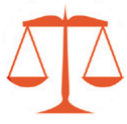
ADVOCATES: caring, supportive, empathetic—a good listener with a desire to give back.
Description: Advocates are motivated to act on behalf of others. They help people achieve their hopes and dreams within the fabric of their communities. Advocates have a fire that is automatically ignited when they see a way to make a difference and identify how they can bring
about change. They give their all so that the lives of others will improve.
Tools: Pick a cause that matters to you and focus on why it matters to the people you want to serve. If you don’t already have an issue you are invested in, pick something that will energize you. With the Internet, it’s never been easier to find a cause to commit to. While you’re looking, listen to your gut.
Strategically target the communities and networks you want to reach and what you want from them. Use the right tools to activate your networks. Define your metrics for success. As an advocate, be sure to have your own version of success. “
A small body of determined spirits fired by an unquenchable faith in their mission can alter the course of history.” —Mahatma Gandhi

CREATIVE COMPANY INDIVIDUALS: confident, courageous, entrepreneurial—an executor of ideas.
Description: These men and women aren’t (necessarily) coveting their boss’s job or dreaming about breaking off to do their own thing. What they want is the freedom to get big things done within the structure of the companies they work for. They are the entrepreneurs working inside large organizations. When they find a good idea, Creative Company Individuals know how to turn it into a full action plan. When they use the power of their creative vision, they not only contribute to society, they also take risks that could potentially impact the future of their employees, their organization, and their industry.
Tools: Gain trust and enlist a committed supervisor and/or mentor. In order to build trust and develop this type of relationship, start with daily tasks to show you are committed to long-term goals.
Create space and regular opportunities to practice innovation in ways that don’t heavily affect the company’s bottom line and/or threaten its position. As a Creative Company Individual you can assess the company’s culture and limits and work in a manner that helps the organization take a risk, but in a way that the company is willing to try.
Gain access to groundbreaking innovation inside and outside your field. This could be everything from watching TEDx conferences at your desk to negotiating for an expense budget that allows you to attend three conferences a year.
“A rock pile ceases to be a rock pile the moment a single man contemplates it, bearing within him the image of a cathedral.” —Antoine de Saint-Exupéry
THE CONNECTION EXECUTORS
These are the individuals who mobilize all the people, ideas, and resources needed to get big things done. With the connection executors are the mix masters, the disruptors, and the empathetic entrepreneurs.

MIX MASTERS: open-minded, creative, synergistic—a cross-pollinator of ideas.
Description: Mix Masters thrive when they reach out and connect intelligently beyond their particular fields. Drawing upon varied skills, Mix Masters spot patterns, make connections and help facilitate multiple opportunities and intersection points. They take existing pieces
of knowledge, ideas, and memories and coalesce them into new concepts, products, ideas, or arguments.
They often approach life like scientists, testing hypotheses and reaching reasoned conclusions.
Tools: Observe the types of people and ideas that you let into your life. You can pick our teachers, our friends, the books we read, the music we listen to, and the movies we watch. You are a mashup of what you let into your life; you can see differently by connecting with new types of people, ideas and knowledge.
Hold an hour of exploration time, or “play,” each week. As a Mix Master, you need time to conceive and combine ideas, and to engage long enough to follow through. Sometimes this time is spent to grow new skills (e.g., blogging, singing, playing a sport, programming). Sometimes this time is spent connecting to people in different disciplines or backgrounds.
Use different types of connection tools to test your ideas. When mixing new ideas, try using different tools to connect with new communities and networks (video, audio, gaming, Twitter, FB, Vine, Pinterest). Use these tools to bring communities together.
“Nothing is entirely original—everything builds on what came before. Creativity is a combinatorial process—we create by taking existing pieces of knowledge, ideas, influences, memories, and experiences collected in the course of being alive and awake to the world, and fusing those together into new combinations that we call our own ‘original’ ideas.” —Maria Popova
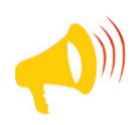
ACTIVISTS: courageous, committed, organized—a change agent.
Description: Activists are committed to righting wrongs; they are justice-oriented. When they employ connectional intelligence, Activists get really big things done, solving problems, saving lives, and changing the world. Activists are good at forging alliances and connecting
disparate groups.
Tools: Cultivate your networks—striving for as much diversity as possible—before you really need them. Identify ties that help you engage and connect to new crowds and organizations. Forge relationships with people who are different from you in age, view, political perspective,
educational background, career role, and geographic location.
Create spaces for new constituencies to join forces with you. Reach beyond the usual suspects.
Find ways to give back once you’ve broadened your networks and built your movement. It’s important to envision sweeping change, but when it comes to getting something accomplished, start small and give back to your local networks.
“What counts in life is not the mere fact that we have lived. It is what difference we have made to the lives of others that will determine
the significance of the life we lead.” —Nelson Mandela
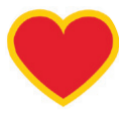
EMPATHETIC ENTREPRENEUR: passionate, tenacious, adaptable—a creative visionary.
Description: This person wants to be his own boss, but also wants to fill a real need. Empathetic Entrepreneurs are creative and driven; they are authentic salespeople, not hustlers. They are those who stop and listen to connect with their customers and fans on an emotional level, putting themselves in service to others. They collect data before they make a big move, building the fuel needed to push past challenges that arise and bring something creative and new to the world. Most importantly, they really listen, all along the way, making sure that the work they are doing is delivering something that people actually want.
Tools: Broaden the possibilities of who you might serve. If you spend time talking to people and observing their needs, creative ideas start to appear, and often they can help more constituencies than you might imagine.
Fail fast and fail forward. If you are an Empathetic Entrepreneur, you must dabble, play, mess around and experiment. It hardly matters if you are good at it or not at first. You can move on to another form or genre without having to worry about humiliation of failure. Set up a system of incremental rewards to sustain your business over the long term. Being an Empathetic Entrepreneur takes guts and requires structures that fuel your passion and energy.
“Believe in your idea, trust your instincts, and don’t be afraid to fail.” —Sara Blakely
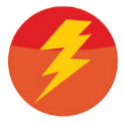
DISRUPTORS: audacious, forward-thinking, fearless—a risk-taking leader.
Description: Disruptors are groundbreaking pioneers who upend traditional wisdom and find new ways of solving problems. Disruptors live in a world of “yes, and” as opposed to “not, but.” They don’t play by society’s rules; in fact, they often feel that rules are made to be broken. Disruptors have a fearless willingness to plunge into the unknown. They are first to market or first to take action for anything that is new. Innovators like Apple’s Steve Jobs and Facebook’s Mark Zuckerberg perfectly embody the Disruptor model, creating whole new worlds in the most cutting-edge fields—technology and the Internet. Disruptors do things in nontraditional ways and introduce radically new ideas into the culture. They gravitate toward people with active minds and stimulating conversation.
Tools: Notice patterns that upend current wisdom and then break or reverse “stupid rules” or processes.
Create a separate, informal space that is exclusively devoted to creative thinking and brainstorming. Schedule a regular time at which you bring your colleagues to brainstorm new ideas, discuss long-term projects, or set strategy. The best Disruptors have a tight-knit team, but also prioritize carving out an adequate amount of “personal time” to test ideas. Build open platforms on which problems can be solved. When you are tackling a big challenge, design the problem in a way that lets many people pitch in to solve it.
“If you obey all the rules, you miss all the fun.” —Katharine Hepburn
Two decades after the internet blasted into our collective lives, the big news, especially for anyone who’s experienced digital overload or fatigue, is that there are many real-life applications for all of your connectedness that are bigger and more powerful than how many followers you have on Twitter or how many likes your posts get on Facebook. Connectional Intelligence propels us all beyond networking and entertainment toward a loftier purpose—improving people’s lives, building sustainable societies and creating the futures we want. Soon it will also be a required skill: today’s and tomorrow’s generations will know no world without smart connection, and we can’t ask them to park or squander what they do best. And you should not park or squander what you do best; you should use your connectional intelligence to its fullest and get big things done. But first you have to figure out exactly what type of connector you are.

